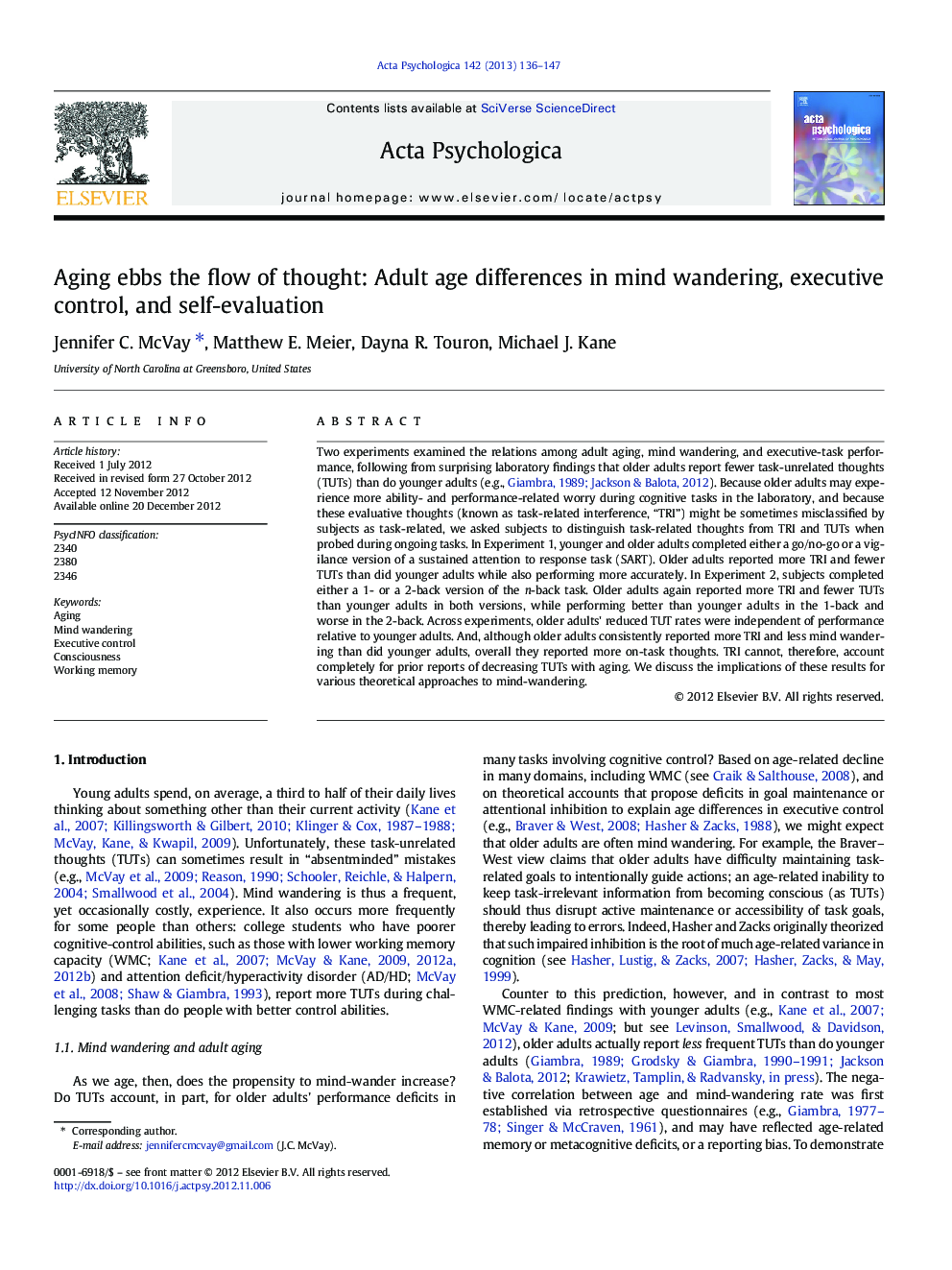| Article ID | Journal | Published Year | Pages | File Type |
|---|---|---|---|---|
| 919946 | Acta Psychologica | 2013 | 12 Pages |
Two experiments examined the relations among adult aging, mind wandering, and executive-task performance, following from surprising laboratory findings that older adults report fewer task-unrelated thoughts (TUTs) than do younger adults (e.g., Giambra, 1989 and Jackson and Balota, 2012). Because older adults may experience more ability- and performance-related worry during cognitive tasks in the laboratory, and because these evaluative thoughts (known as task-related interference, “TRI”) might be sometimes misclassified by subjects as task-related, we asked subjects to distinguish task-related thoughts from TRI and TUTs when probed during ongoing tasks. In Experiment 1, younger and older adults completed either a go/no-go or a vigilance version of a sustained attention to response task (SART). Older adults reported more TRI and fewer TUTs than did younger adults while also performing more accurately. In Experiment 2, subjects completed either a 1- or a 2-back version of the n-back task. Older adults again reported more TRI and fewer TUTs than younger adults in both versions, while performing better than younger adults in the 1-back and worse in the 2-back. Across experiments, older adults' reduced TUT rates were independent of performance relative to younger adults. And, although older adults consistently reported more TRI and less mind wandering than did younger adults, overall they reported more on-task thoughts. TRI cannot, therefore, account completely for prior reports of decreasing TUTs with aging. We discuss the implications of these results for various theoretical approaches to mind-wandering.
► Two experiments test for age differences in mind-wandering during cognitive tasks. ► Older adults show reduced rates of task-unrelated thought. ► Older adults show increased rates of performance-related thought. ► Findings are not easily accommodated by executive-resource theories of mind-wandering.
